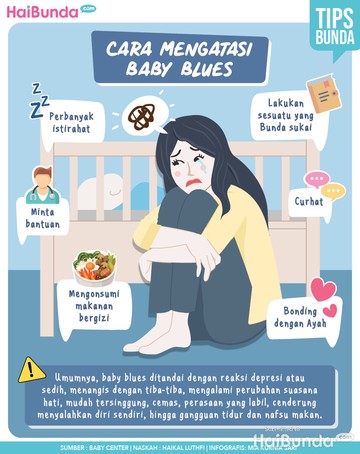
These physical realities alone can be enough to bring on the blues. It usually occurs within the first three days following birth and continues for a couple of weeks and goes away on its own.

After having a baby 1 out of 8 women experience postpartum depression.
The baby blues. Preventing the Baby Blues. If taken during the prenatal period studies have shown that the Omega-3 fats EPA and DHA may lower the risk of pre-term birth and lower the risk of postpartum depression in new mothers. Additionally inadequate maternal intake of Omega-3s has also been linked to child-onset Type 1 Diabetes.
The baby blues can be a risk factor for postnatal depression NHS Choices 2018a. This page was last reviewed in January 2018. Our support line offers practical and emotional support with feeding your baby and general enquiries for parents members and volunteers.
The baby blues are perfectly normal in the immediate postpartum period and typically include sadness mood swings and even anger. Unless you have postpartum depression the blues. The baby blues can be triggered by physical changes emotional factors or both.
After birth your body changes rapidly. Your hormone levels drop your breasts may become engorged as your milk comes in and you will most likely be exhausted. These physical realities alone can be enough to bring on the blues.
Baby blues are irregular mood changes that can start shortly before or anytime after childbirth but usually set in between a week and a month after delivery and generally last for less than two weeks. The reality of attending to a new baby that monopolizes all your time and energy can leave you feeling irrationally upset and frustrated. The Baby Blues And Postnatal Depression.
Baby Blues After Childbirth. Just The Baby Blues. Pregnancy Bitrh And ParenthoodMelborne.
Kaplan Harold I 2004. Pocket Handbook of Emergency Psychiatric Medicine. Bryar Rosamund M 2001.
Baby blues juga dikenal sebagai postpartum blues atau postpartum distress syndrome ini adalah perasaan emosional yang dirasakan Bunda setelah melahirkan. Jika Bunda baru saja melahirkan dan merasa mudah menangis mudah tersinggung dan sedikit tertekan kemungkinan Bunda mengalami sindrom baby blues. The baby blues and postnatal depression The Baby Bluesadalah depresi ringan yang terjadi pada ibu-ibu dalam masa beberapa jam setelah melahirkan sampai beberapa hari setelah melahirkan dan kemudian dia akan hilang dengan sendirinya jika diberikan pelayanan psikologis yang baik.
Sindrom baby blues sebagian besar dialami oleh para ibu baru dan gejalanya mulai muncul di hari ketiga pasca melahirkan di mana air susu ibu mulai terbentuk. Mengutip Jurnal Manajemen Komunikasi Universitas Padjajaran gejala yang dialami seorang ibu dari sindrom baby blues ini mungkin seringkali merasa sedih marah dan kadang-kadang cemas. Definition of the baby blues in the Idioms Dictionary.
The baby blues phrase. What does the baby blues expression mean. Definitions by the largest Idiom Dictionary.
The baby blues are normal and should go away within a few days or weeks. If your symptoms last longer than two weeks you could have postpartum depression or anxiety. If you feel depressed or anxious when you are pregnant or after your baby is born you are not alone.
After having a baby 1 out of 8 women experience postpartum depression. Baby blues vs Postpartum depression. Baby blues or temporary dips in the mood of mothers who recently gave birth are usually experienced or felt when the baby is just 2 to 3 days old.
Sometimes it may start a bit later. The baby blues will lessen and eventually fade away when the baby hits 1 to 2 weeks old. The baby blues are thought to be linked to hormonal changes that happen during the week after giving birth BB 2014.
Your body has some major adjustments to make which may include coming down from the adrenaline high that you felt when your baby was born. The baby blues are thought to be linked to hormonal changes that happen during the week after giving birth APNI 2016 NHS 2018. Your body has some major adjustments to make which may include coming down from the adrenaline high that you felt when your baby was born.
Baby blues can be left to run its course and your mental well-being will return to normal soon as the hormones in your body go back to normal levels. Before we move on to discuss how you can deal with postnatal depression heres a table summarising the key similarities and differences between postnatal depression and baby blues. The baby blues affects 60-80 of all new mothers.
It usually occurs within the first three days following birth and continues for a couple of weeks and goes away on its own. READ THE FULL ARTICLE. You May Also Like.